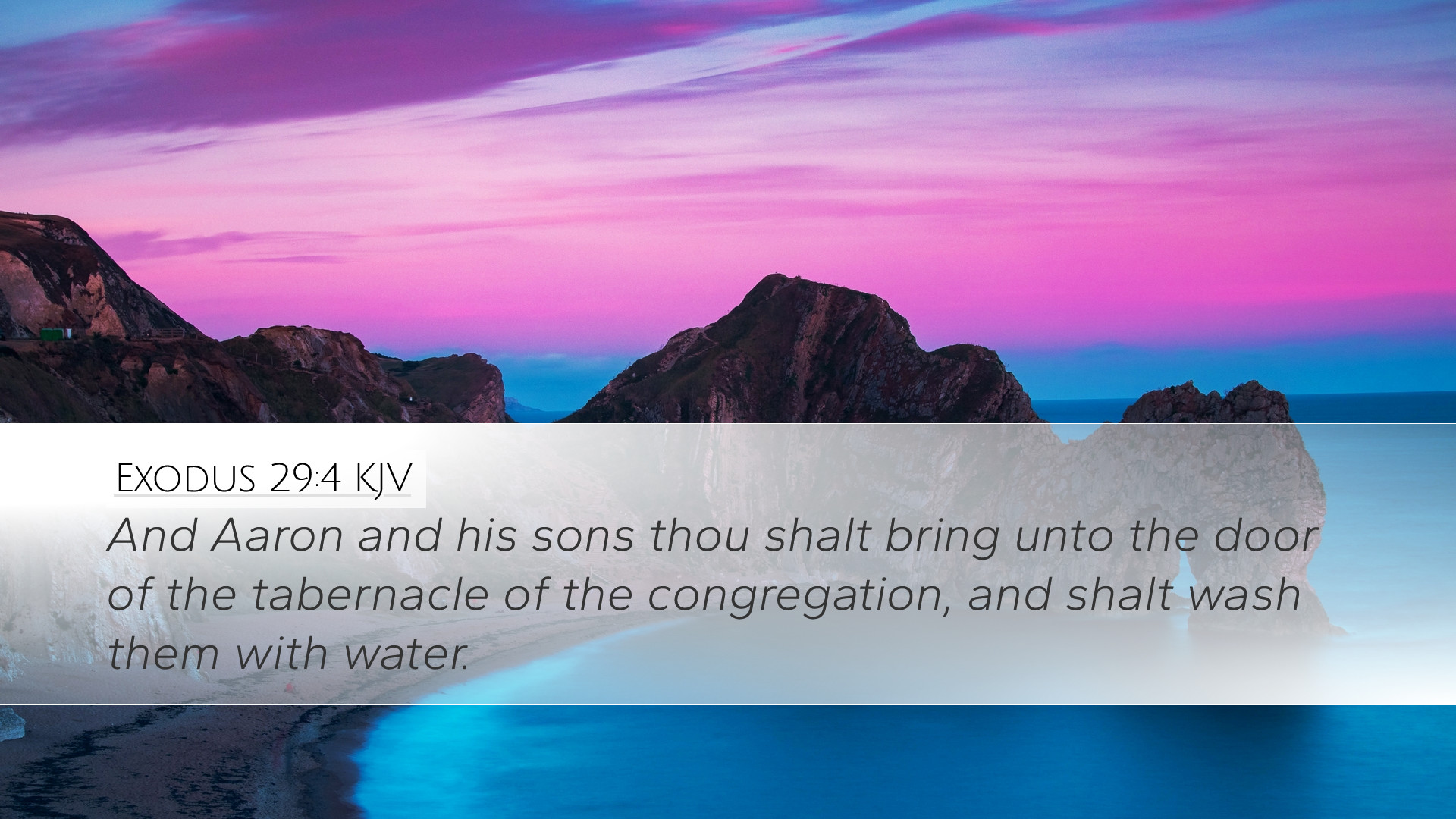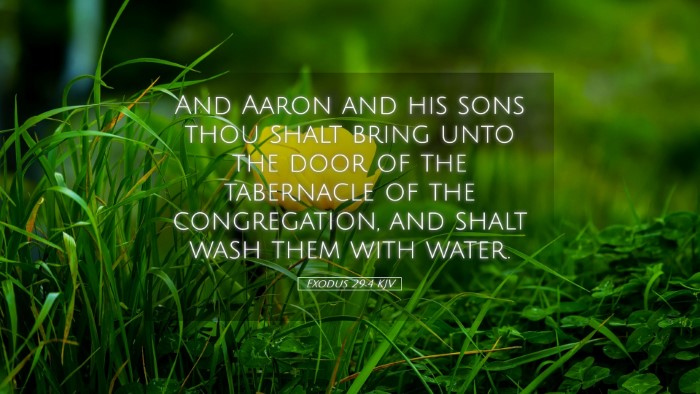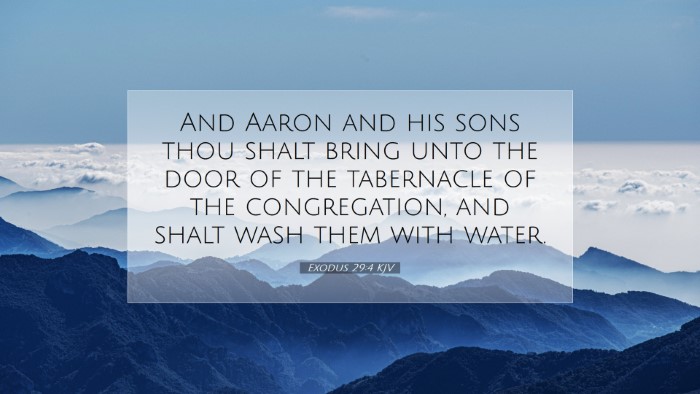Commentary on Exodus 29:4
Verse Context: Exodus 29:4 states, "And Aaron and his sons you shall bring to the entrance of the tent of meeting and wash them with water." This verse is situated within the larger context of God's instructions to Moses regarding the consecration of Aaron and his sons as priests.
Significance of Priestly Consecration
The act of consecrating Aaron and his sons is central to the establishment of the priestly office in Israel. This ordination is emblematic of God's plan for a mediatorial priesthood, aimed at restoring the relationship between the holy God and His people. Matthew Henry emphasizes that this washing signifies both physical and spiritual cleanliness required for those who approach God’s service.
Insights from Commentators
-
Matthew Henry:
Henry elaborates on the ritual washing as an essential precursor to the ordination process. He notes that the washing with water symbolizes the removing of impurity, akin to how baptism signifies repentance and the washing away of sin in the New Testament. This cleansing is not merely physical but speaks to the necessary inner purity for those serving in sacred duties.
-
Albert Barnes:
Barnes echoes this notion, correlating the act of washing to the broader theme of sanctification found throughout Scripture. He points out that Aaron and his sons' washing prepares them to enter the Holy Place, drawing parallels with the requirements for believers today to approach God with clean hands and pure hearts.
-
Adam Clarke:
Clarke provides a historical context, asserting that this washing was meant to indicate the seriousness of the priestly office. He stresses that the ritual nature of the preparation highlights the need for careful attention to the requirements of the Law, as those set apart for God’s service must first be cleansed in order to become mediators between God and His people.
Theological Implications
From a theological perspective, Exodus 29:4 contemplates the overarching themes of holiness and access to God. The preparation of the priests serves as a foreshadowing of Christ’s ultimate sacrifice and the believer's call to be holy. The washing signifies the intrinsic need for purification that precedes any spiritual service, reinforcing the idea that God is holy and cannot be approached with unworthiness.
Practical Applications for Today
For pastors and scholars, this verse serves as a poignant reminder of the importance of personal holiness and preparation in ministry. Premising their service on a commitment to personal sanctification demonstrates the seriousness of the calling. In the life of the church, this verse serves to guide today's clergy—even as they invoke God's ministration, they too must engage in the spiritual practices of confession and renewal.
Key Takeaways:
- The washing ritual signifies the importance of purity for those called to serve God.
- It emphasizes the concept of sanctification, a necessary precursor to being in God's presence.
- It foreshadows the ultimate cleansing provided through Christ, our high priest.
- Contemporary application includes the call for all believers to pursue holiness as part of their spiritual lives.
Conclusion
As we reflect on Exodus 29:4, we are called to understand the depth of spiritual preparation required to serve the Lord. The communal implications for holiness in the life of a believer and the seriousness of leadership within the church remain as vital today as they were in the days of Aaron and Moses.


